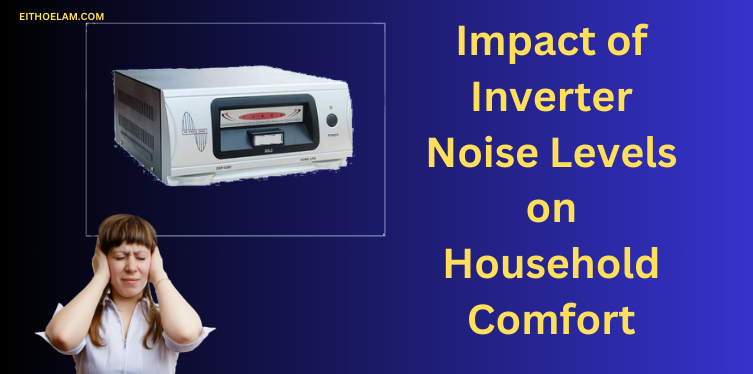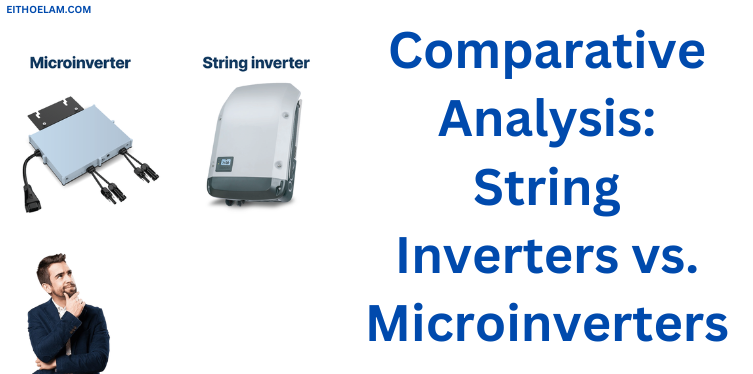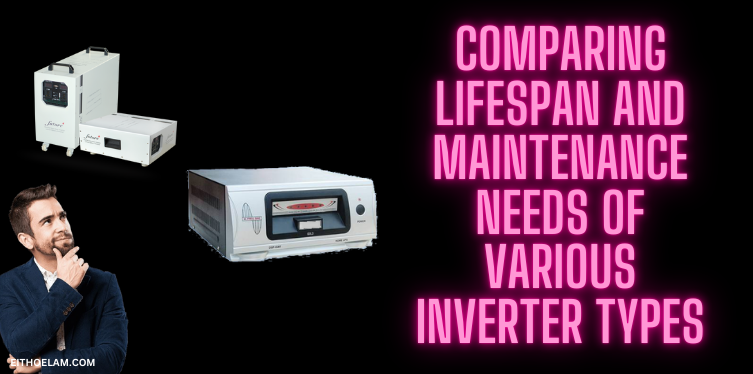Introduction
Modern home appliances these days come with inverters as part of the power supply system from an air conditioner to a refrigerator. However, the noise generated by inverters has not been solved by improving the efficiency of inverters. In this blog, we will discuss the “Impact of Inverter Noise Levels on Household Comfort” and how you can handle this factor to enhance your living.
What is an Inverter and Why Does It Make Noise?
An inverter is just a device that converts direct current to alternating current. What the inverter does help appliances like an air conditioner, a refrigerator, and even the washing machine work much more efficiently by regulating their speeds and power consumption depending upon the demands. But, being mechanical or electronic, devices like inverters also emit noise, and it’s on several grounds.
The common source of noise from an inverter is its fan, compressor, or even its inner part. Due to its variation of an electrical output’s frequency, it normally introduces vibrations or electromagnetic interference with its surroundings. Of course, the quality of design from the inverter and materials used may enhance the level of noise released.
Different Types of Inverter Noise
Inverter noise can be broadly categorized into two types: mechanical noise and electromagnetic noise. Let’s break them down one by one:
- Mechanical Noise: This falls generally under noise due to movement of internal parts, such as fans and compressors or even a cooling system. A compressor is typically employed to amplify the mechanical noise in large appliances, such as an air conditioner or a refrigerator. This noise ranges from a low hum to a higher-pitched whine.
- Electromagnetic Noise: The electrical parts of the inverter produce electromagnetic waves, causing interference to other electronic equipment that surrounds the inverter and creating a soft buzzing or humming noise. This is less common than mechanical noise, but it counts as part of the total noise.
Factors Affecting Inverter Noise Levels
This will depend on several factors; knowing them will allow you to control or minimize the effect of the noise made by the inverter.
- Size and Type of Appliance: Noisier are larger appliances like air conditioners or industrial fridges in relation to their size and power required for their inverters. The smaller appliances like LED TVs or washing machines will make less noise.
- Design and Quality of the Inverter: A better-quality inverter is sure to produce less noise as they contain quality insulation, smooth operational cooling system, and effective mechanisms for smoother operational movement. Low-quality inverters that contain low-quality fans and perhaps other materials that echo more noise are cheaper.
- Installation Location: Sometimes, installation location can be the cause of noise levels. Installation of inverters indoors in a sealed room with poor ventilation tends to increase the noise since the trapped air and vibrations will cause it. It is always advisable to locate inverters in well-ventilated rooms away from living rooms if possible.
- Age and Maintenance: With the passage of time, the dust and dirt will have accreted onto the inverters which will cause a rise in the noise. Inverter maintenance is going to minimize the accumulation of noise throughout its lifetime; for example, fan cleaning, making sure there are no loose components in the inverter.
How Inverter Noise Affects Household Comfort
With that information at hand, we can then try to understand how these noises affect the comfort of a household.
- Sleep Disruptions: Probably, the general complaint would be on sleeping effect. Air conditioners running with an inverter have this constant humming sound. This might not very pleasing to people, mainly at quiet hours. Suppose, for instance, this inverter making the humming sound is placed inside your room; you can’t even have your ability to sleep deprived or even wake you at nighttime.
- Mental Stress: Continuous background noise by appliances especially in a place like this- a fridge, sometimes an air conditioner- really brings about mental fatigue. And stress of course. One could hear some humming and such coming from an inverter. Small noise itself but in due course really annoying and quite uncomfortable.
- Reduced Relaxation: It is actually a home or a place to which you can go and relax and let out all the tensions. Noise from inverters can make a home not a relaxed place and so you will not be able to study, watch a movie or just go to bed in the evening after office, as constant humming or whirring of inverters can make it pretty noisy.
- Increased Noise Pollution: Inverters, especially old or cheaper ones, could make noise that is quite audible throughout the house. This not only disturbs the immediate vicinity but might also affect the overall level of noise in your place. If the inverter is placed close to the window or the outside wall of your house, it will disturb your neighbors as well.
Also Read: Comparative Analysis: String Inverters vs. Microinverters
How to Minimize the Impact of Inverter Noise on Household Comfort
Fortunately, it is possible to minimize the effects that inverter noise can have, so your home remains comfortable and peaceful.
- Choose a Quiet Inverter: While buying an inverter, you should do well to look up the details regarding the decibel level from the product details. Inverter manufacturers have started detailing decibel levels so you could easily make a silent choice. As a thumb of the rule, an inverter with less than 40 dB is relatively quiet.
- Install the Inverter in a Suitable Location: At the same time, location of the inverter will also determine whether it causes noise and how much it would create. Where the inverter will be fitted avoid that place near living rooms, to minimize further disturbances during daily life; choose the appropriate spot such as placing in a utility room or in the cellar or even garage.
- Invest in Soundproofing: It is possible to soundproof a room if you cannot remove the inverter. Just add sound-absorbing materials to the walls and floor to minimize the noise made by the inverter or use soundproof enclosures to reduce the leakage of noise from the inverter.
- Maintain the Inverter Regularly: Keep your inverter clean and well maintained: A noisy inverter will not happen at all if it is properly maintained. Cleaning the fans and vents to prevent dust buildup is a good practice. Any kind of strange noises or vibrations in the inverter should be taken to a technician.
- Use Noise-Canceling Technology: In places where the noise of the inverter is too disturbing, use noise-canceling headphones or white noise machines to mask the noise and make it more comfortable for you. This may not completely eliminate the noise, but it certainly makes it less noticeable.
Conclusion:
Of course, it isn’t exactly something you can instantly feel, but the effect on your comfort level due to high inverter noise indeed is significant as time passes. Knowing what causes inverter noise and taking measures to decrease that will aid you finally to come across a quiet environment inside a house. By acquiring a quieter model or the proper installation along with proper maintenance, you’re more than within range of getting down the inverter noise level.
FAQ’s
1. Can inverter noise be completely eliminated?
While it’s difficult to eliminate all noise, choosing a quiet inverter model, placing it in the right location, and maintaining it properly can significantly reduce the noise levels.
2. How loud is too loud for an inverter?
An inverter with a noise level above 50 dB can be considered noisy, especially in a quiet household. Anything below 40 dB is generally considered quiet and shouldn’t interfere with daily activities.
3. Can inverter noise cause hearing damage?
Inverter noise is generally not loud enough to cause hearing damage, as it typically falls within a range that is not harmful. However, prolonged exposure to high noise levels can still contribute to stress and discomfort.
4. Why does my inverter make a high-pitched noise?
A high-pitched noise may indicate an issue with the inverter’s internal components, such as the cooling fan or compressor. If the noise persists, it’s advisable to have the unit checked by a technician.
5. Can inverter noise be a sign of a malfunction?
Yes, unusual noises such as rattling, buzzing, or whirring sounds may indicate a problem with the inverter. It’s important to get it checked out if the noise seems abnormal.
Disclaimer: This research utilizes artificial intelligence (AI) to gather insights and support analysis on the topic.






Leave a Comment